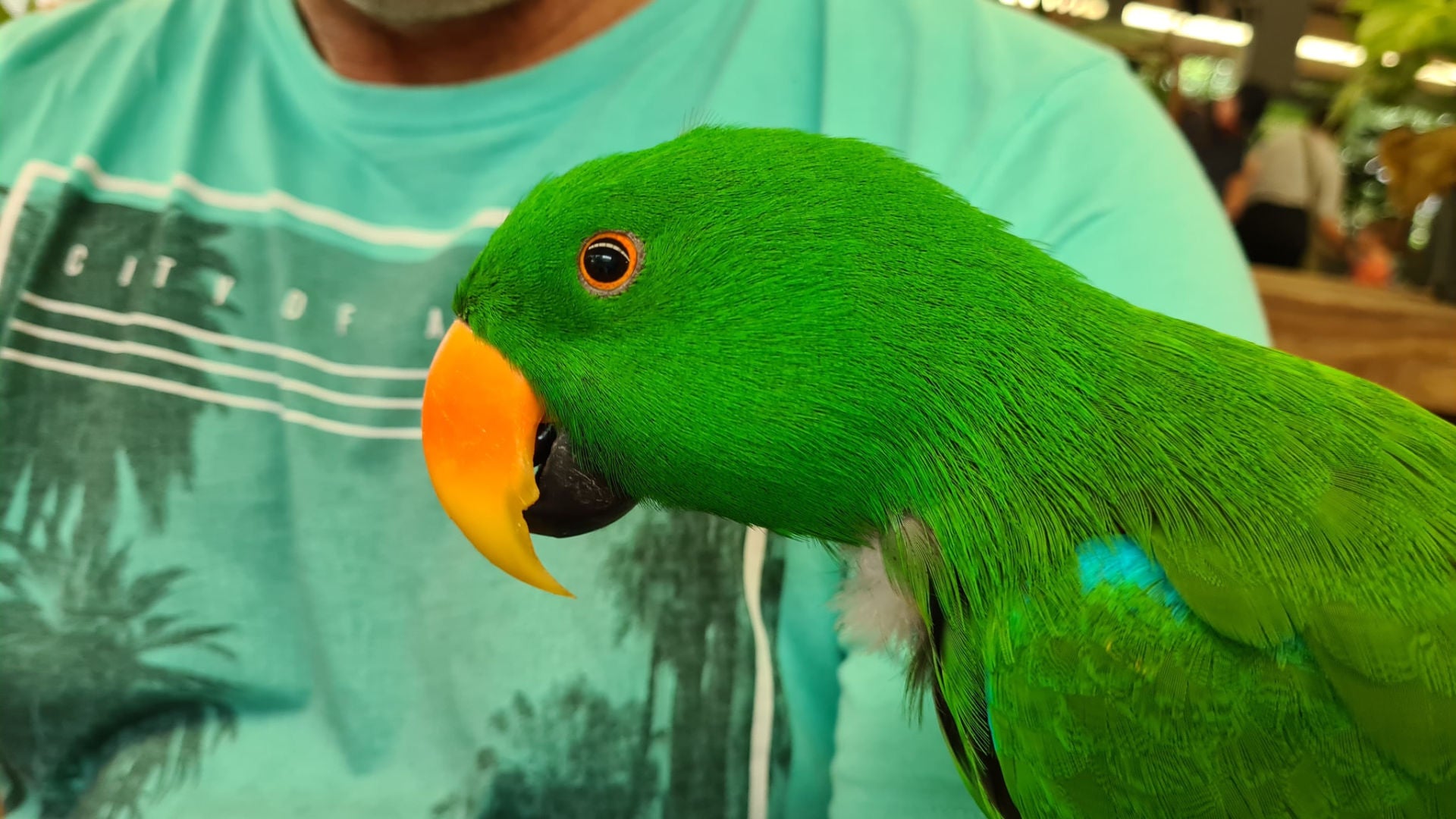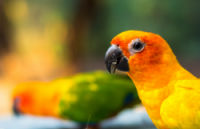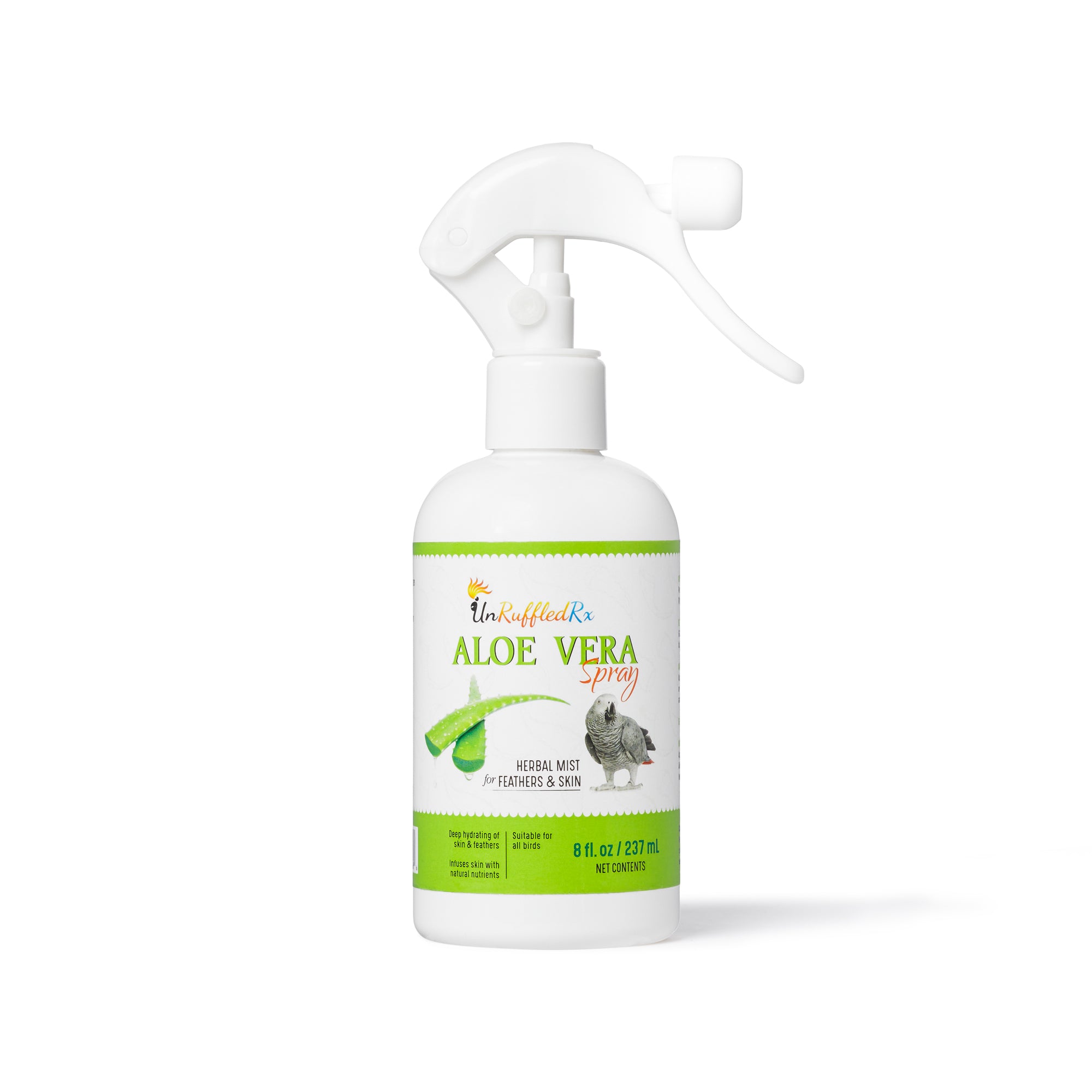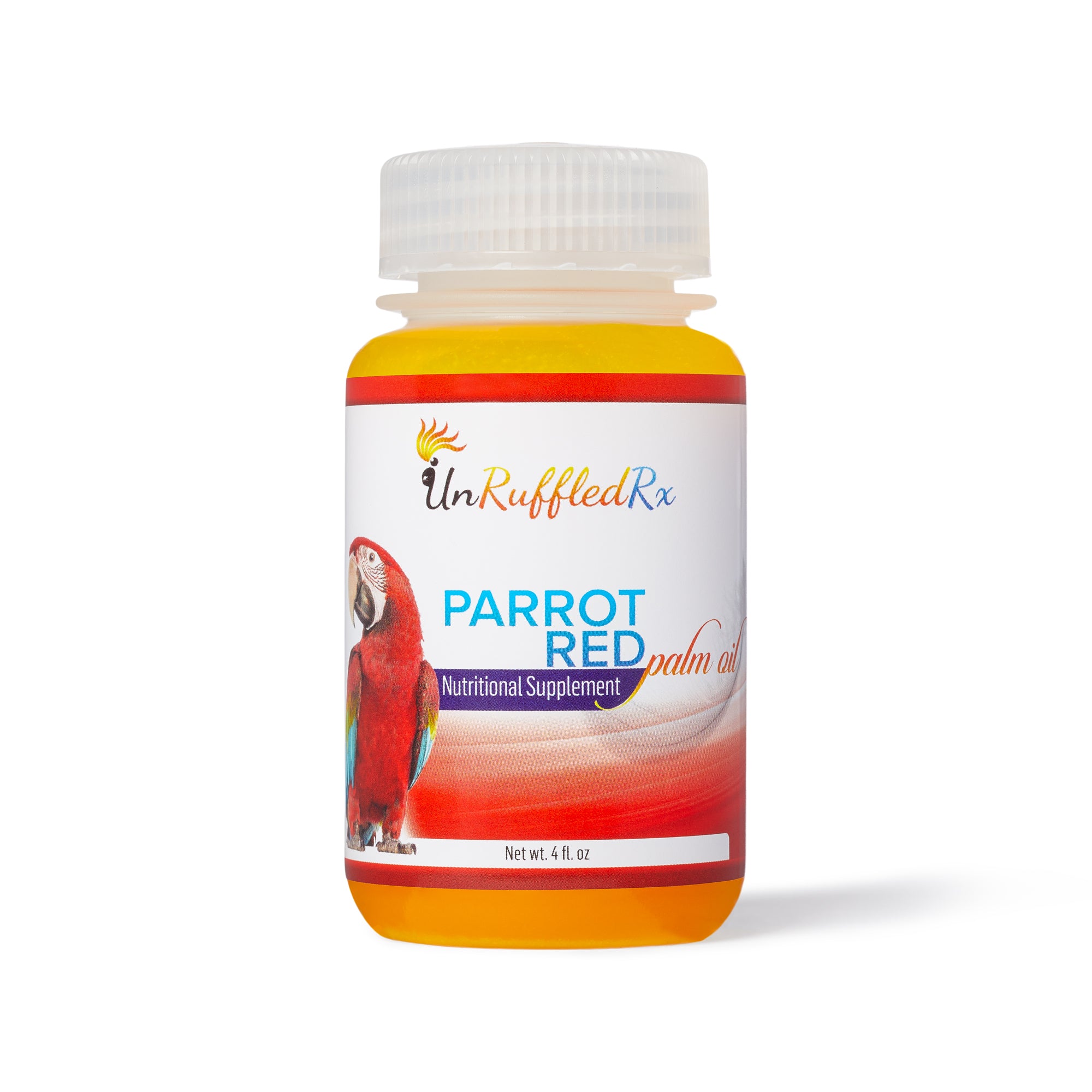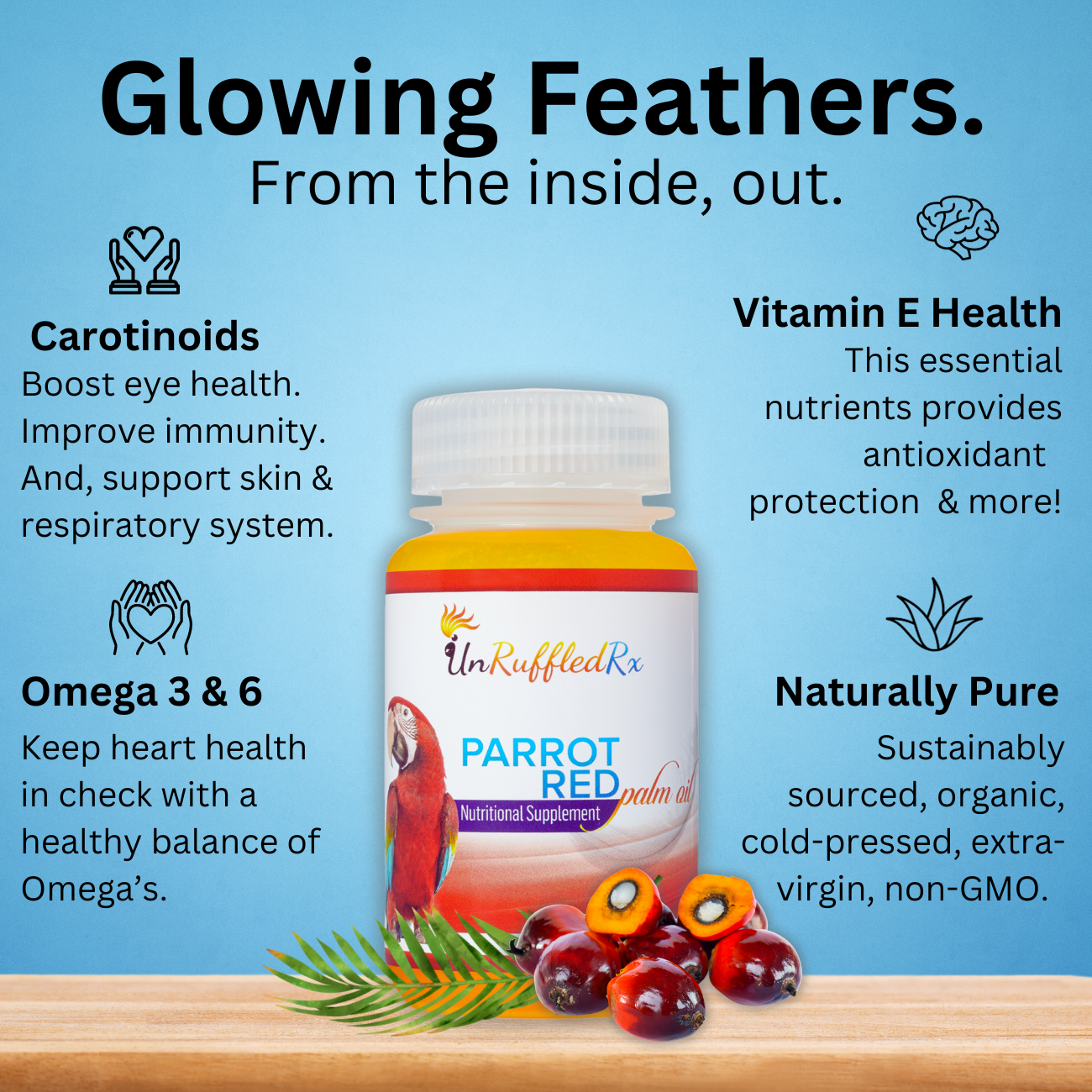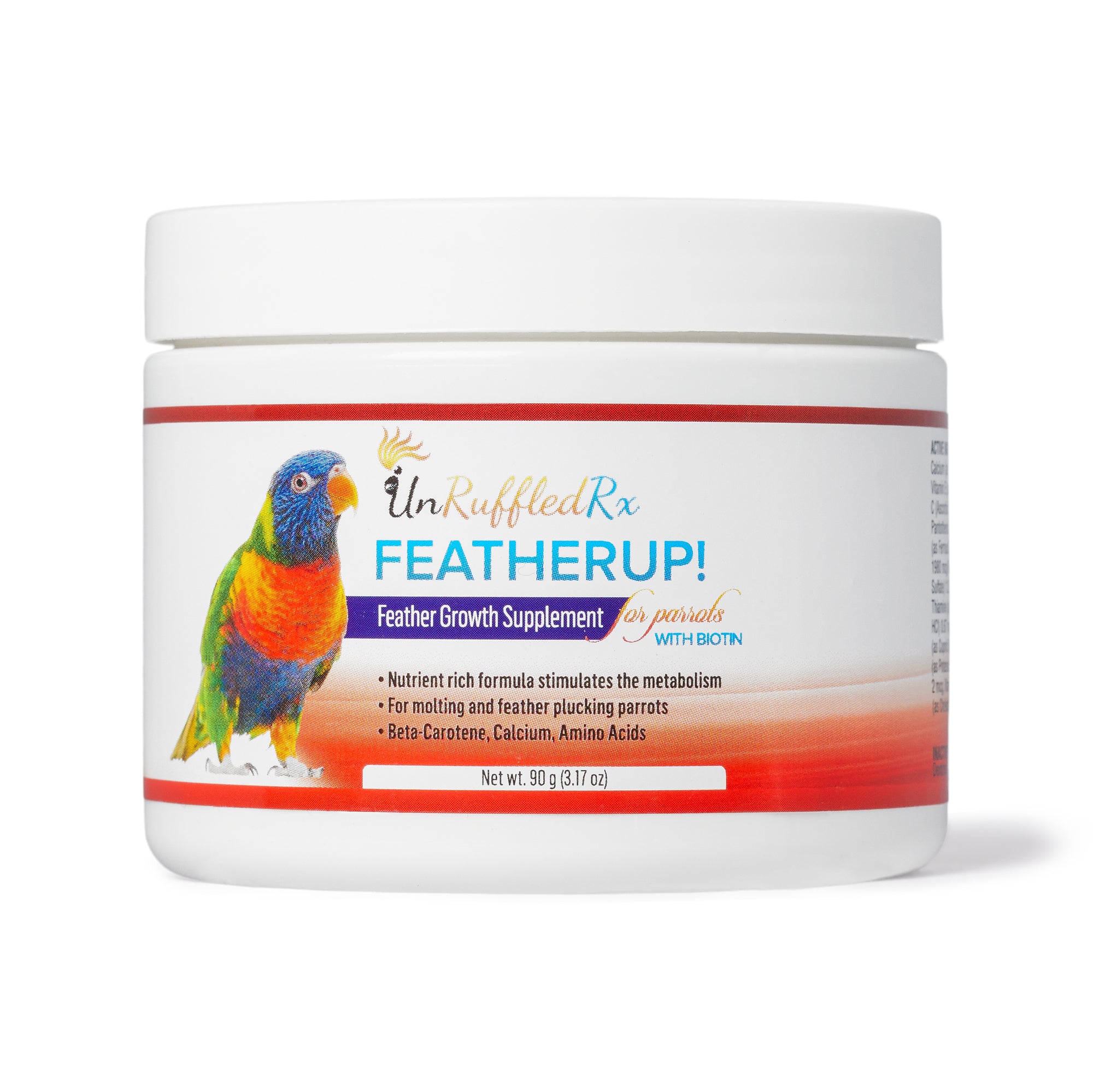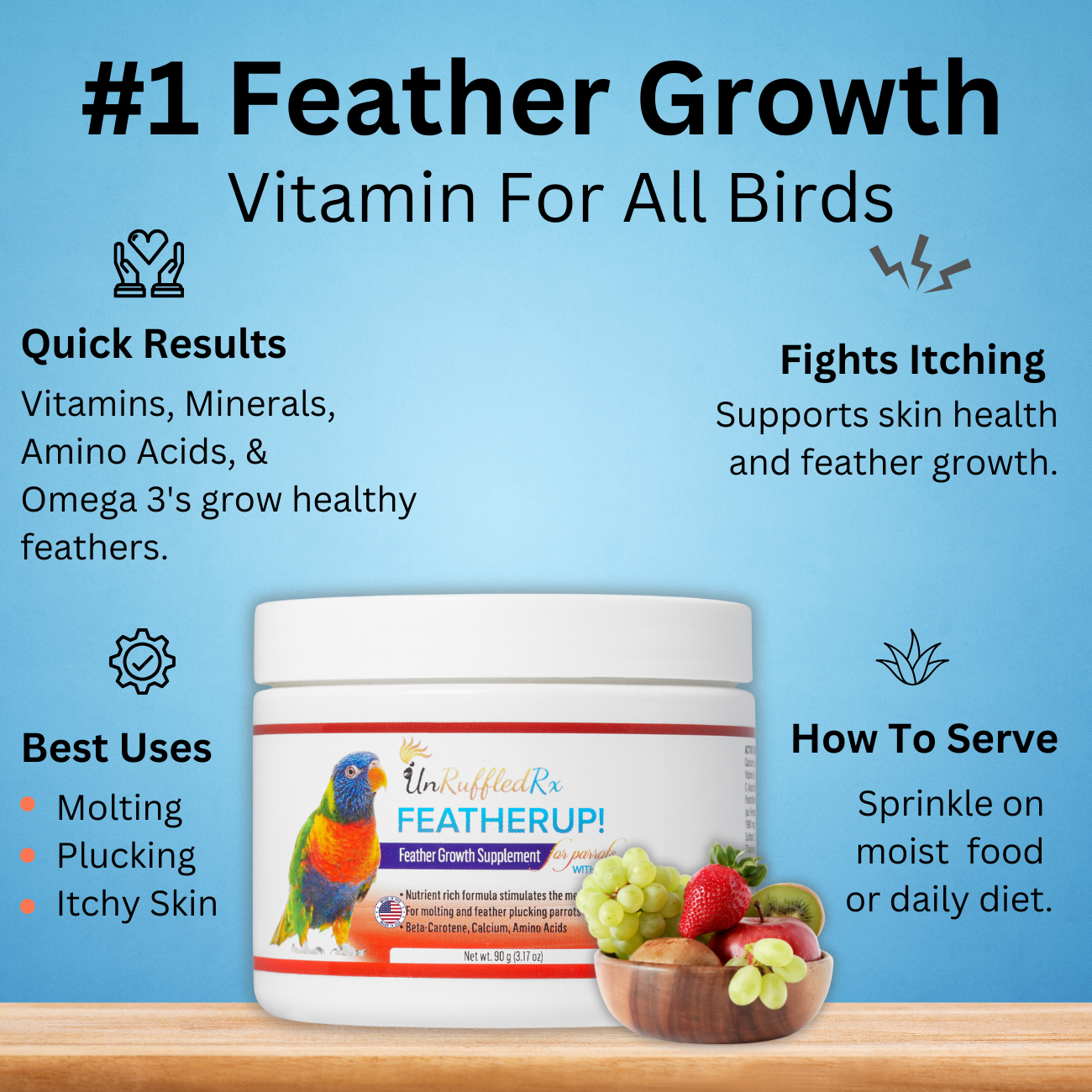Table of Contents
- Is calcium important for birds?
- Do parrots need magnesium?
- Do parrots need vitamin D?
- What are the symptoms of a calcium, magnesium, and vitamin D deficiency?
- Do avian vet lab reports identify calcium, magnesium, and vitamin D deficiencies?
- What’s the difference between vitamins and minerals?
- How does calcium, magnesium, and vitamin D work together?
- What bird calcium supplement is best for birds
Do you have an exotic bird? Do you want to learn more about keeping it healthy? If so, this ultimate guide to bird calcium, magnesium, and vitamin D can help you provide the right diet and supplements to keep your bird happy and healthy! First, I’ll give you an overview of what all three are and why they’re important for your bird.
Is calcium important for birds?
Yes! In fact, it’s just as important as it is for humans. But how do you know whether your bird needs extra calcium? Luckily, a premium diet provides most birds with plenty of calcium. However, some species (such as African Grey Parrots) tend to need higher levels of calcium that other parrots. And if your bird doesn’t get enough calcium from their diet alone—or if they have special needs that can make it difficult to provide enough—you may want to consider adding a supplement.
Calcium is an excitatory mineral. This means that it helps stimulate neurons in your bird’s brain (the excitatory neurotransmitters). Because of its importance in neural communication—between nerves and muscles, or between parts of a bird’s brain—calcium plays a key role in almost every bodily function.
You probably know that calcium is important for bone growth and bone regeneration. But, did you know that bird calcium also plays an important role in these bodily systems, too?
✔ Beak health
✔ Muscle tone
✔ Coordination
✔ Nerve impulses
✔ Neurological brain activity
✔ Keratin formation (think feather & skin health)
Birds that are low in calcium may experience muscle twitches, wing-flapping, toe tapping and more. Even birds that don’t need extra calcium in their diet will benefit from a supplement. As your bird gets older, their dietary needs may change. And once they reach old age (around 10 years), they’ll definitely need extra calcium as their bones start to become weaker—just like humans do.
But, did you know that vitamins and minerals work synergistically together? Because they’re so closely related in how they help your bird’s body function, it’s important to take them at appropriate doses. Your best bet is to give them at a ratio of 1:1:1—that is two parts calcium : one part magnesium : one part vitamin D3. But, these ratio's are species specific.
Without magnesium, calcium is not absorbed properly. Unfortunately, it doesn't just leave the body in waste. It calcifies in the arteries. That’s why a magnesium deficiency can cause heart disease or stroke even if you don’t know that your bird isn’t getting enough of it. And if they aren’t getting enough vitamin D3, their body can’t make use of all that beneficial calcium (and no matter how much they get, you won’t see them absorb more than 10%). So remember: 1:1:1!
Do parrots need magnesium?
Magnesium is a key dietary mineral most people are familiar with. It is known as a "calmative" mineral. It’s often included in anti-anxiety medicines and prescribed by veterinarians for treating a wide range of health conditions. We all know parrots are prone to anxious, nervous behavior. But what exactly does it do?
Parrots are greatly affected by magnesium deficiencies. First, as stated above, the body can't even make use of calcium without magnesium and vitamin D. Magnesium allows calcium to chelate or be absorbed. Were it not for minerals vitamins wouldn't be absorbed by the body.
Magnesium, the second most abundant mineral in the body, also has several other supports functions:
✔ Bone and beak health
✔ Nerve impulses
✔ Muscle coordination
✔ Relaxing muscles
✔ Brain neurons
✔ Heart health
Remember, calcium that is not properly broken down and absorbed tends to accumulate and calcify in various body systems. Not only does magnesium support healthy calcium absorption but it breaks down calcification that has already accumulated in the arteries, blood vessels, joint, soft tissue and even in the brain.
Poor feather health and plucking are often the first signs that your bird is in trouble. When the body's systems don't get enough nutrients, they begin to deteriorate and shut down. It can be a slow, miserable death. UnruffledRx Bird Calcium, Magnesium + D3 can be a lifesaver.

Do parrots need vitamin D?
You bet! While humans can get vitamin D naturally from the sun, our tropical birds may need special bird lights to produce vitamin D, especially in the winter. The body can only absorb calcium when vitamin D is present. Without enough vitamin D, your bird's bones could become brittle and break. "
Vitamin D also regulates many other cellular functions in your body. Its anti-inflammatory, antioxidant and neuro-protective properties support immune health, muscle function and brain cell activity." (mayo clinic)
Protect your bird with UnRuffledRx Bird Calcium, Magnesium + D3.
What are the symptoms of a calcium, magnesium, and vitamin D deficiency?
Even if you’re feeding your pet a balanced diet that includes premium pellets and vegetables, they may still benefit from supplementation with calcium, magnesium and vitamin D.
So what are these essential nutrients? Here's what you need to know about all three. A calcium deficiency is when an animal doesn't have enough of the mineral in their system (such as in their bones or blood). Symptoms include weakness, loss of appetite and potentially seizures and death in extreme cases.
Calcium deficiency is relatively common in pet birds, especially African Grey Parrots.
If your bird has a mild case you might notice poor feather condition or a sense of "clumsiness." As the condition worsens, you bird may seem off-balance because it's muscles aren't working properly. Or your bird may act fatigued, experience dizziness, or even muscle cramps. At severe levels your bird may begin to have seizures.
Sometimes these symptoms are hard to spot, particularly if you don't routinely observe your bird for these signs.
Do avian vet lab reports identify calcium, magnesium, and vitamin D deficiencies?
Many people balk at high veterinary bills so most vets will recommend basic lab tests that includes an avian blood CBC, basic blood chemistry, a fecal exam, Choanal and Oropharyngeal Smears.
Many deficiencies are not usually found by routine blood tests, but can be seen on special testing requested for an additional charge by your avian veterinarian when suspecting nutritional deficiency. These deficiencies are not usually found by routine blood tests, but can be seen on special testing requested by your avian veterinarian when suspecting nutritional deficiency.
The National Research Council (NRC) has made recommendations of how much calcium (9.8 mg/dl), magnesium (0.3 mg/dl), and vitamin D3 (8 ng/ml) your pet bird should have in their blood stream at a given age. These values are based on birds that are not breeding, so they may be slightly higher in a breeding situation or if your bird is older than 2 years old.
The biggest factors that will affect your pet bird’s vitamin D status are their diet (with most pellet foods being supplemented with vitamins) and exposure to sunlight. Please see our discussion of How does my pet bird get vitamin D from sunlight?
What’s the difference between vitamins and minerals?
If you’re like me, you might be curious about the difference between vitamins and minerals. Vitamins are organic compounds. That means they come from living plants and animals. Minerals are inorganic elements that don't come from living things. They come from the soil and water. When ingested by animals, they are absorbed into the body to help it function properly.
Imagine the plethora of nutritional substances available in the jungles and rainforests where our birds originate from. From plants to clay licks. We know that what they eat is important but how do you ensure that they get what they need? How do we mimic a jungle diet if we don’t live there or have access to that much variety? How can we be sure these exotic birds are getting all of their nutritional needs met every day?
Ideally, you should mix together fruits and vegetables. Feed your bird a rich range of fresh, uncooked fruits, vegetables, herbs and other plant based foods.
Calcium rich foods include a variety of leafy greens such as kale, bok choy, collard greens and parsley. Tofu is also a good source of calcium. Magnesium rich foods include brown rice and spinach. As for vitamin D3 supplements - if you can find an avian specific supplement, like UnRuffledRx Bird Calcium, Magnesium, +D that's great! If you're bird is a picky eater, supplements may be the answer.
Why does all of this "bird cheffery" matter? Well first off, an imbalanced diet can lead to malnutrition which can cause problems with overall health including weight loss (and decreased appetite), abnormal bone growth , kidney disease , etc. There's also some evidence that certain types of deficiencies early in life could have long term effects on intelligence and behavior.
How does calcium, magnesium, and vitamin D work together?
I've mentioned earlier that all of these nutrients work synergistically with other nutrients as well which is why a complete bird supplement is so important. Each nutrient has its own synergistic relationship to the mix — one is necessary for optimal absorption of another. This is especially true when it comes to calcium, magnesium and vitamin D3.
What bird calcium supplement is best for birds
UnRuffledRx Bird Calcium Supplement is a trusted calcium supplement that is recommended by many vets. It provides nutrients in a form readily absorbable by your bird’s body, helping prevent skeletal, nervous, heart and feather issues.
In Conclusion
Most bird owners know that calcium is an important mineral for bird health. It aids in healthy formation of new cells (particularly bones and feathers) and helps with muscle contraction, blood clotting, nerve transmission and heart function. Since calcium deficiency results in severe health issues in birds, it is important to supplement your parrot’s diet with a good, complete source of calcium. However, many bird owners don’t realize that another essential mineral -- magnesium -- also plays an important role in maintaining normal physiological function and preventing diseases.
Related Posts:
The Signs Of Malnutrition In Birds And What You Can Do About It Right Now!
Everything You Need To Know About Bird Calcium For A Happy, Healthy Bird
References
Courteney-Smith, J and Alderton, D. 2021. Calcium, magnesium and UV and preventing feather plucking in birds - part three
Breus, MJ. 2018. What You Need to Know About Magnesium and Your Sleep
Sakas, P. Understanding Avian Laboratory Reports
Diane Burroughs, LCSW is a licensed psychotherapist trained in ABA therapy techniques. She specializes in avian anxiety disorders and is certified in Nutrition For Mental Health. Diane has written a number of bird behavior books and she offers behavior consultations. She's developed a range of UnRuffledRx Science-backed Parrot Wellness Supplies.
Diane's products have been featured in the Journal of Avian Medicine and Surgery and at Exoticscon, a conference for exotic pet veterinarians. Her bird collars & supplements are stocked in avian vet clinics and bird stores throughout the US. With over 30 years in the field of behavior, Diane has created thousands of successful individualized behavior plans that help pets thrive.
TAGS: #BirdCalcium #BirdCalciumSupplement
SHARING IS CARING! PLEASE SHARE ON YOUR FAVORITE SOCIAL MEDIA NOW!


